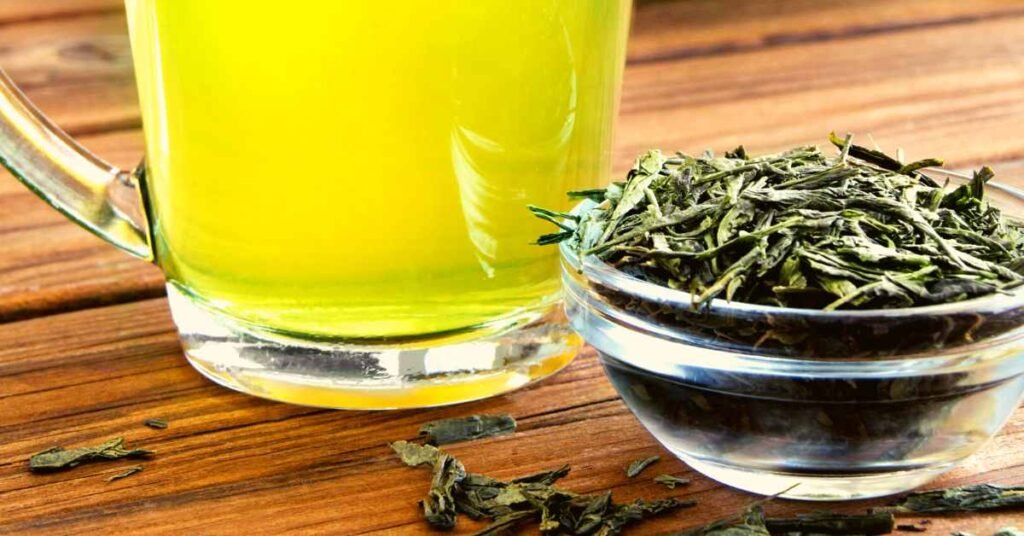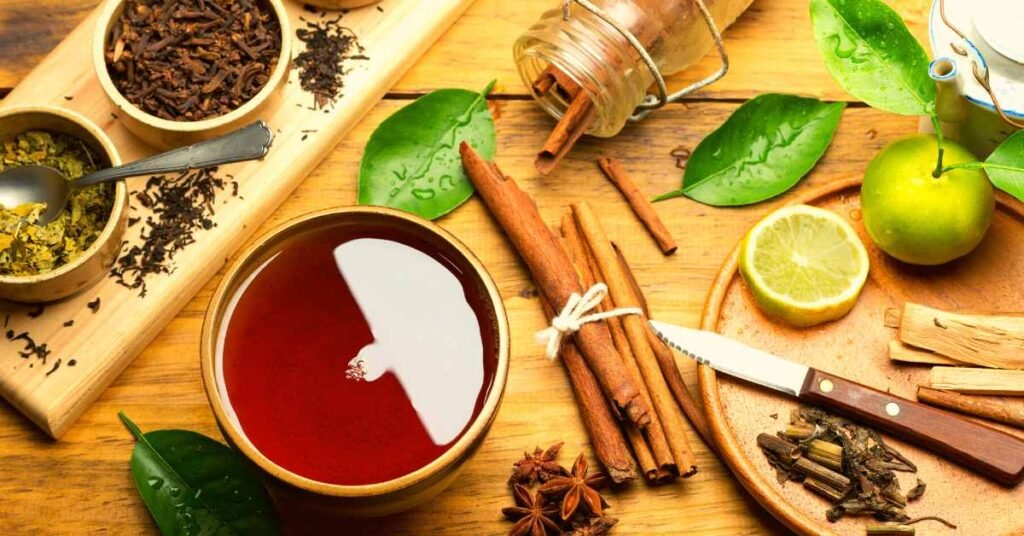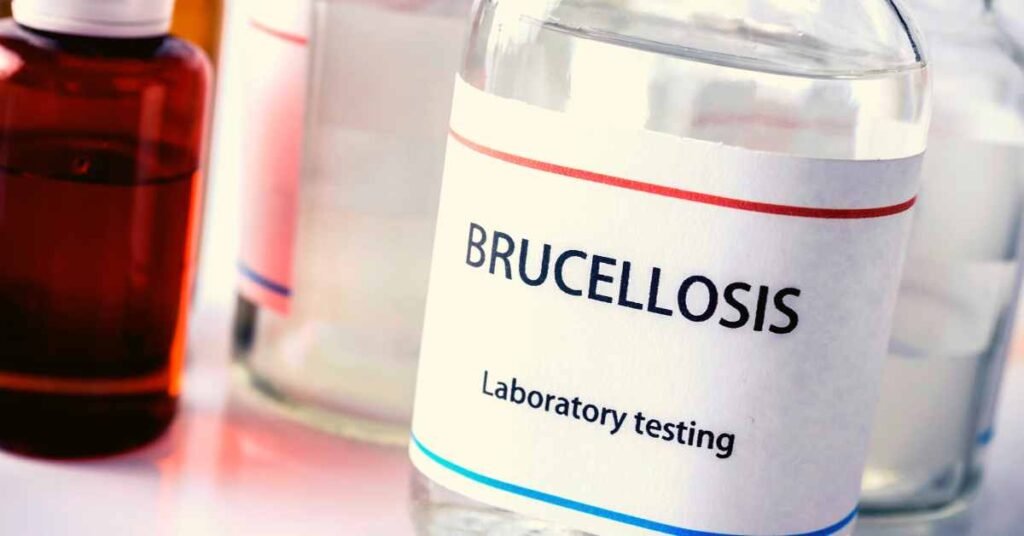Tea, a beverage deeply rooted in cultural traditions around the world, has gained a reputation not only for its delightful flavors but also for its numerous health benefits.
In recent years, scientific research has delved into the potential therapeutic properties of tea in managing various health conditions.
One such condition that has caught the attention of researchers is brucellosis, a bacterial infection with significant health implications.
In this article, we will explore the link between tea and brucellosis, examining whether this beloved beverage can play a role in managing the symptoms and supporting the treatment of this infectious disease.
Understanding Brucellosis

Brucellosis, caused by bacteria belonging to the genus Brucella, is a zoonotic infection primarily transmitted from animals to humans.
Commonly associated with livestock such as cattle, goats, and sheep, Brucella bacteria can be transmitted to humans through the consumption of contaminated dairy products or direct contact with infected animals.
The disease manifests with a range of symptoms, including fever, fatigue, joint pain, and muscle aches, making it a challenging condition to diagnose accurately.
The Role of Tea in Health
Before delving into the potential benefits of tea for brucellosis, it’s crucial to understand why tea has been revered for its health-promoting properties throughout history.
Tea, whether green, black, white, or herbal, is rich in bioactive compounds, including polyphenols, catechins, and antioxidants.
These compounds have been linked to a myriad of health benefits, such as anti-inflammatory, antioxidant, and antimicrobial properties.
Green Tea and Brucellosis

Green tea, derived from the leaves of Camellia sinensis, is particularly rich in catechins, such as epigallocatechin gallate (EGCG), known for their potent antioxidant and antimicrobial effects.
Several studies have explored the potential of green tea in combating bacterial infections, and while the research on its direct impact on brucellosis is limited, its antimicrobial properties may offer some promise.
EGCG, the most abundant catechin in green tea, has demonstrated antibacterial activity against various pathogens.
It inhibits bacterial growth by disrupting cell membranes and interfering with essential bacterial functions.
Although the specific effects of EGCG on Brucella bacteria need further investigation, the general antimicrobial properties of green tea suggest that it may have a role in inhibiting the growth and spread of the bacteria in the body.
Black Tea and Immune Support
Black tea, another popular variety derived from the same tea plant, undergoes fermentation, resulting in a distinct flavor profile and a unique set of bioactive compounds.
While black tea may not be as rich in catechins as green tea, it contains theaflavins and thearubigins, which contribute to its potential health benefits.
Studies have shown that black tea consumption can enhance the immune system by promoting the production of immune cells and cytokines.
A robust immune response is crucial in combating bacterial infections, including brucellosis.
By supporting the immune system, black tea may play a complementary role in the overall management of brucellosis, helping the body mount an effective defense against the invading bacteria.
Herbal Teas and Symptom Relief

Beyond traditional tea varieties, herbal teas crafted from an array of plants and botanicals have gained popularity for their diverse therapeutic properties.
Some herbal teas, such as chamomile, ginger, and echinacea, are known for their anti-inflammatory and immune-boosting effects.
While there is no direct evidence linking these herbal teas to brucellosis, their potential to alleviate symptoms such as fever, pain, and fatigue could offer supportive benefits to individuals managing the infection.
Chamomile, for example, has been traditionally used to reduce inflammation and promote relaxation.
Ginger, with its anti-inflammatory properties, may help alleviate joint pain associated with brucellosis.
Echinacea, known for its immune-boosting effects, could support the body’s defenses against the bacterial infection.
Considerations and Precautions
While the potential benefits of tea in managing brucellosis are intriguing, it’s essential to approach these findings with caution.
Tea should not be considered a substitute for medical treatment prescribed by healthcare professionals.
Brucellosis requires prompt and appropriate antibiotic therapy, and any complementary approach, including tea consumption, should be discussed with a healthcare provider.
Moreover, individual responses to tea can vary, and excessive consumption may lead to side effects such as insomnia, gastrointestinal issues, or interactions with medications.
Pregnant women, individuals with pre-existing medical conditions, and those taking medications should exercise caution and seek guidance from their healthcare providers before incorporating tea into their routine.
Final Word

Tea, with its rich history and diverse varieties, has piqued the interest of researchers exploring its potential therapeutic benefits.
While the direct link between tea consumption and the management of brucellosis requires further investigation, the existing body of research on the antimicrobial, anti-inflammatory, and immune-supporting properties of tea compounds suggests that it may play a supportive role in overall health.
As we continue to unravel the mysteries of tea and its impact on various health conditions, including infectious diseases like brucellosis, it is crucial to approach the topic with a balanced perspective.
Tea, enjoyed in moderation as part of a healthy lifestyle, may contribute to overall well-being. However, it is imperative for individuals with brucellosis or any other medical condition to consult with healthcare professionals for personalized advice and appropriate treatment strategies.
MEDICAL DISCLAIMER
Itsnevernotteatime.com cannot and does not contain medical/health advice. The medical/health information is provided for general and educational purposes only and is not a substitute for professional advice.




